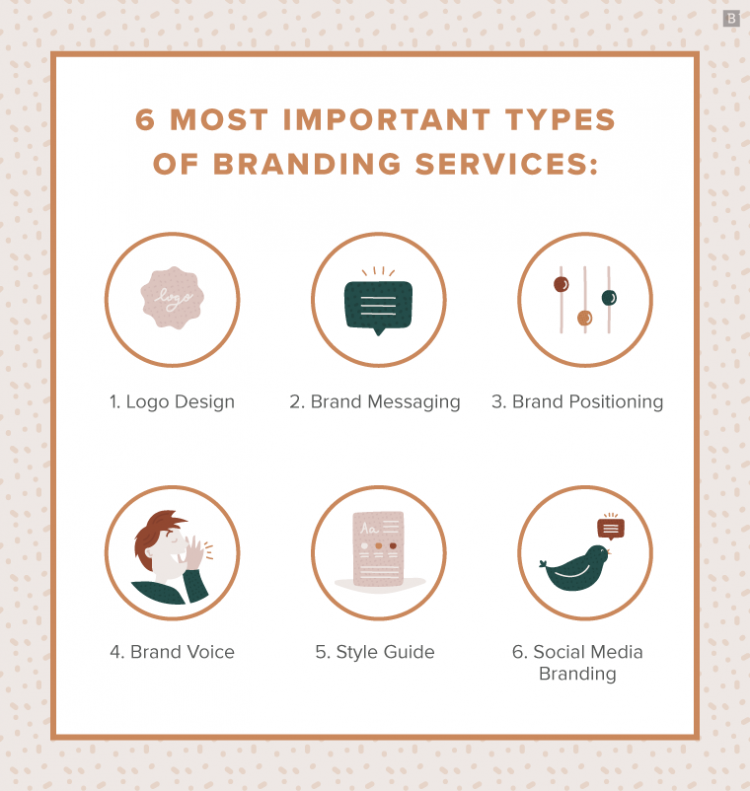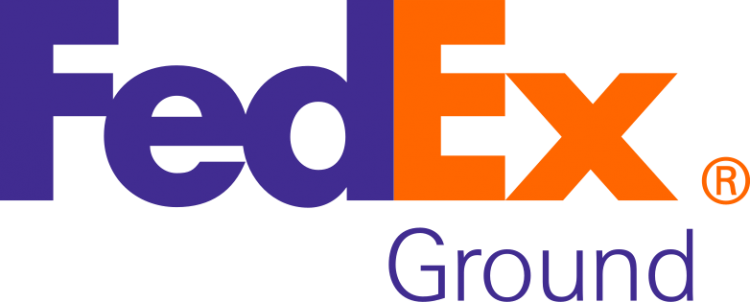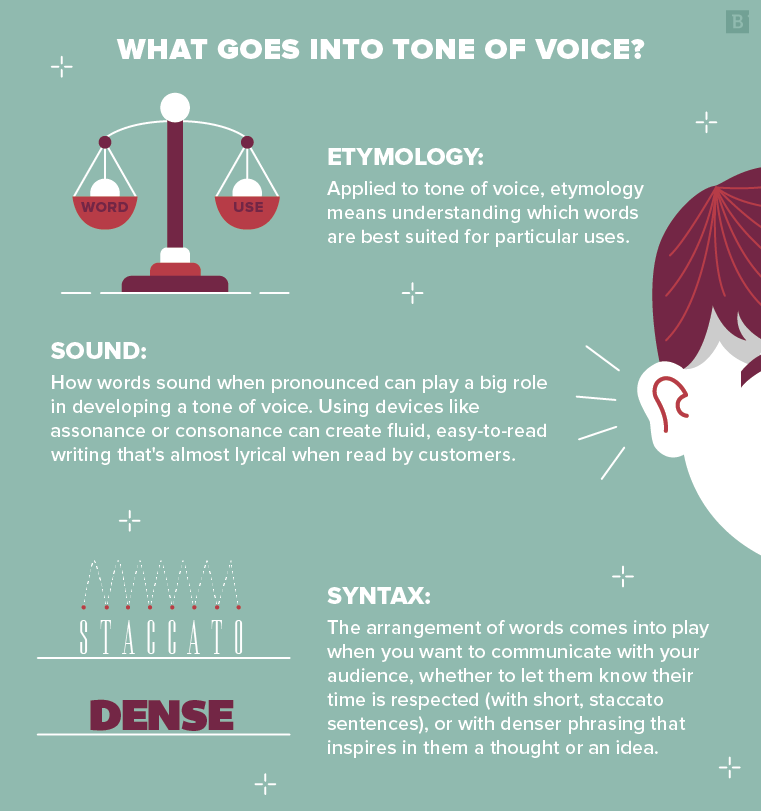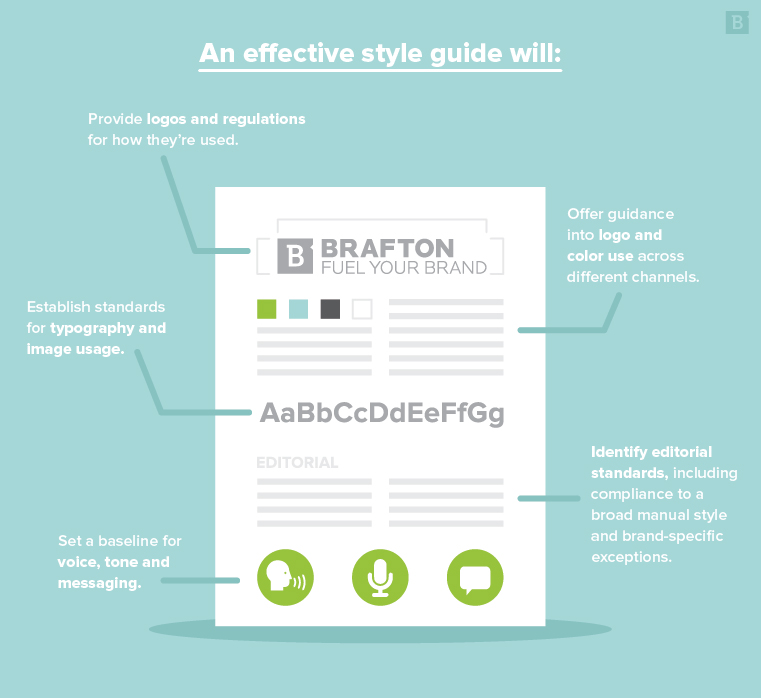Your brand is more than just a logo, name or color scheme. It’s who you are as a company at a very fundamental level.
Branding dictates how customers feel about your business and, when done right, can elicit an emotional response at every touch point. Businesses with strong brands retain loyal customers for the long run and have an easier time appealing to new audiences because they already know what those companies stand for.
This is all to say that if you aren’t effectively branding your business online and elsewhere, you’re putting some major barriers in the way of your marketing efforts.
Branding services can help companies with any aspect they might be struggling with, whether they need to create a brand identity from scratch or simply find a better way to communicate their core messaging and company values through compelling graphic design.

What Does a Brand Agency Do?
Dedicated brand agencies can provide a wide variety of services depending on their clients’ particular needs, ranging from brand strategy and brand design to brand development and brand management. Anything and everything related to elevating your business is on the table.

Common branding agency offerings can include:
- Building a brand identity from the ground up.
- Rebranding established businesses.
- Establishing brand positioning and messaging.
- Creating a branding strategy.
- Designing company logos.
- Formulating brand guidelines for design, style and tone.
- Mapping out a social media strategy that aligns with the company’s brand identity.
- Writing copy for websites and other digital assets that accurately reflect the brand voice.
It’s a lot of ground to cover, and the only way that branding agencies can get the job done is to fully immerse themselves in every aspect of their clients’ brand identities. That includes their core values, mission statements, messaging, voice and more.
Not all businesses have a firm grasp on who they are as a brand, or even where to begin figuring that out. Branding agencies need to define the key principles and intangible qualities that set those companies apart from the competition. What makes them different and special? How can they sell that vision to their target audience? Those are the questions a brand agency can help answer.
Subscribe to
The Content Marketer
Get weekly insights, advice and opinions about all things digital marketing.
Thanks for subscribing! Keep an eye out for a Welcome email from us shortly. If you don’t see it come through, check your spam folder and mark the email as “not spam.”
Top Branding Services That Support Marketing Efforts
Branding agencies approach branding services from numerous angles, helping businesses establish, maintain or expand their brand in every possible way. These six, in particular, can elevate your marketing strategy with a clearer focus on who you are and what you have to offer.
1. Logo Design
First impressions are important, and for many potential customers, your logo will provide the initial glimpse of your brand. A company logo is essentially the face of the organization, and it should tell prospective customers everything they need to know about your business right up front. Logos set the stage for large-scale identity design.
A well-designed logo supports marketing efforts in a variety of ways:
Brand Awareness
Think of virtually any consumer brand – what immediately pops into your mind? Most likely, it’s their logo. For the top brands, logos cross cultural boundaries and international borders, becoming readily recognizable around the globe.
Take Coca-Cola, for instance. By all accounts, it’s one of the most recognizable brands in the world. It doesn’t matter that the logo is written in English – or that it uses a cursive script that reached peak popularity 150 years ago – 90% of people around the world know it when they see it.
That may be an extreme example, but it shows how important a good logo is to catching the eye of customers in crowded markets.
Brand Identity
Logos can tell potential customers a great deal about your business without having to say anything. Coca-Cola’s Spencerian Script reflects the company’s long history and a core product that has remained virtually unchanged for more than 100 years. People choose Coca-Cola because it’s a dependable product. They know what they’re getting from it. Past attempts to mess with the formula have become cautionary tales about brand mismanagement.
Sticking with an old-fashioned logo year after year helps sell the message that the product has stood the test of time and that there’s no need to fix what isn’t broken.
FedEx is another good example of a logo that subtly tells customers quite a bit about the brand. The logo famously hides an arrow within its second syllable suggesting speed, accuracy and reliability in delivering packages to their destinations.

Shortening the company’s original name – Federal Express – to simply FedEx was also a deliberate move to appeal more to consumers rather than government agencies and organizations.
Branding agencies can help design logos that do more than just catch someone’s eye – they establish a clear identity and demonstrate core business values. Whether a company wants to stress its historic legacy, cutting-edge and disruptive ideas or no-nonsense professionalism, logo design services can craft a perfect visual representation of those principles.
2. Brand Messaging
What can you offer customers? How do your services or brand experience compare with the competition’s? What do customers get from your business that they can’t get anywhere else?
Your brand message should account for these questions and more. It defines what your company is, permeating everything from marketing materials to tag lines to product descriptions.
There a lot of factors that are wrapped up in brand messaging, including:
- Value proposition.
- Key differentiators.
- Brand principles.
- Organizational culture.
- Target audience.
- Product positioning.
- Brand equity.
Everything your company says should have meaning, and that meaning should always reflect your brand messaging.
Look at Subway. For decades, it ran a fairly popular – if unremarkable – fast-food business. Today, it’s the largest fast-food chain in the country, representing 18.5% of the total market. A big reason for Subway’s success has been its shift in messaging to appeal to health-conscious consumers.
Every branding change and development that has come about over the past couple of decades has stressed fresh food and healthy eating. The brand’s tagline, “Eat fresh,” is an obvious example. Even redefining employees as “sandwich artists” demonstrates a commitment to food quality.
“Tuna with teriyaki chicken, eggs, and steak—all on a footlong. We couldn’t even fit it all!” Ashia, Sandwich Artist® #StrangestSubwayOrder pic.twitter.com/fvwpH5BU3U
— Subway® (@SUBWAY) November 13, 2019
Working with a brand agency, businesses can receive expert guidance on how to craft the right message for their audience, their industry and their organization. In some cases, an existing approach may only need a slight tweak, whereas in others, a full-scale rebranding is necessary.
Subway essentially rebranded itself as the healthy alternative to the most popular fast-food chains, such as McDonald’s and Wendy’s. Now, those same brands are trying to follow Subway’s lead, pushing healthier food items in their marketing.
3. Brand Positioning
Brand positioning could easily be considered a subset of brand messaging, but it’s important enough to warrant its own discussion.
In short, brand positioning is how you set yourself apart from the competition. What do you bring to the table that’s wholly distinct from other players in your market? If you don’t have a clear answer to that question, it’s going to be difficult to convince potential customers to choose your business over another one.
Branding agencies can help with that, though. Through market research and organizational analysis, they’re able to determine what customers want, what your business can realistically provide and how those offerings compare with your competitors. Your positioning in the marketplace and in the minds of customers is essentially a proxy for your total brand value: It’s the ROI of being who you are.
Creating an effective branding strategy is all about matching your capabilities with your customers’ expectations and desires. Brand agencies are not looking to exaggerate or overpromise. They simply want to drill down into what makes your business unique, and find an effective way to showcase those strengths.
4. Brand Voice
Brands are like people: Each one has its own particular way of expressing itself. Some are friendly, some are irreverent, some are unflaggingly professional and some are aspirational. Establishing a brand voice and adhering to it across all touch points, marketing campaigns and customer interactions is extremely important. Having a strong brand voice solidifies your company’s identity, and any deviation could negatively impact the perception of your organization.

Many companies need help identifying what exactly their brand voice should be, and how to create it. Again, digital branding agencies thoroughly analyze your industry, customer base and company culture to determine what the right approach should be. For instance, a playful, conversational brand voice probably wouldn’t be appropriate for the financial services market where customers are looking for expert support and guidance.
5. Style Guide
Once you’ve defined your brand voice, you need to codify it so every employee and stakeholder knows how to follow your branding guidelines. That’s where a style guide comes into play.
Style guides can lay out your brand voice, messaging, design principles and more in precise detail. They instruct your staff members and business partners on the exact language to use in different scenarios, what color schemes to incorporate into design layouts and how to most effectively communicate with your core audience.

In short, it’s your branding bible. Brand agencies will help create detailed style guides so there’s never any confusion about how to best represent your business.
Embracing your unique brand voice relative to your industry and audience can inform everything from your business card to your go-to-market strategy. A brand voice permeates all elements of marketing.
6. Social Media Branding
Many companies struggle with social media branding. On one hand, you want to have the same consistent branding across all channels. On the other hand, social media platforms like Twitter often lend themselves to more irreverent and playful content.
Businesses need to find a way to stay true to their brand messaging, voice and values while still taking advantage of social media’s inherent strengths . It’s a tricky balancing act, and a lot of organizations wind up falling flat on their faces.
That’s why working with an expert branding agency can be so helpful. They have a keen understanding of what content works on different social media networks and how to effectively use those platforms without sacrificing brand integrity.
You are your brand. If you can’t clearly articulate what your brand stands for, then you’re probably going to struggle to convince prospective customers to buy from your business over the competition. Branding services can help you identify your core principles and package those values in a message that resonates with your audience.
Editor’s note: updated May 2022.



